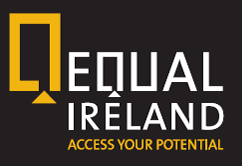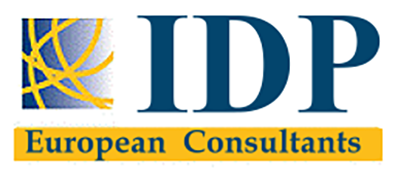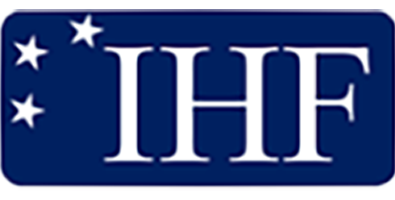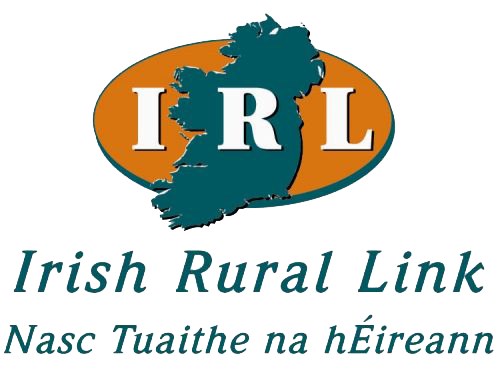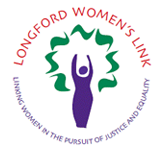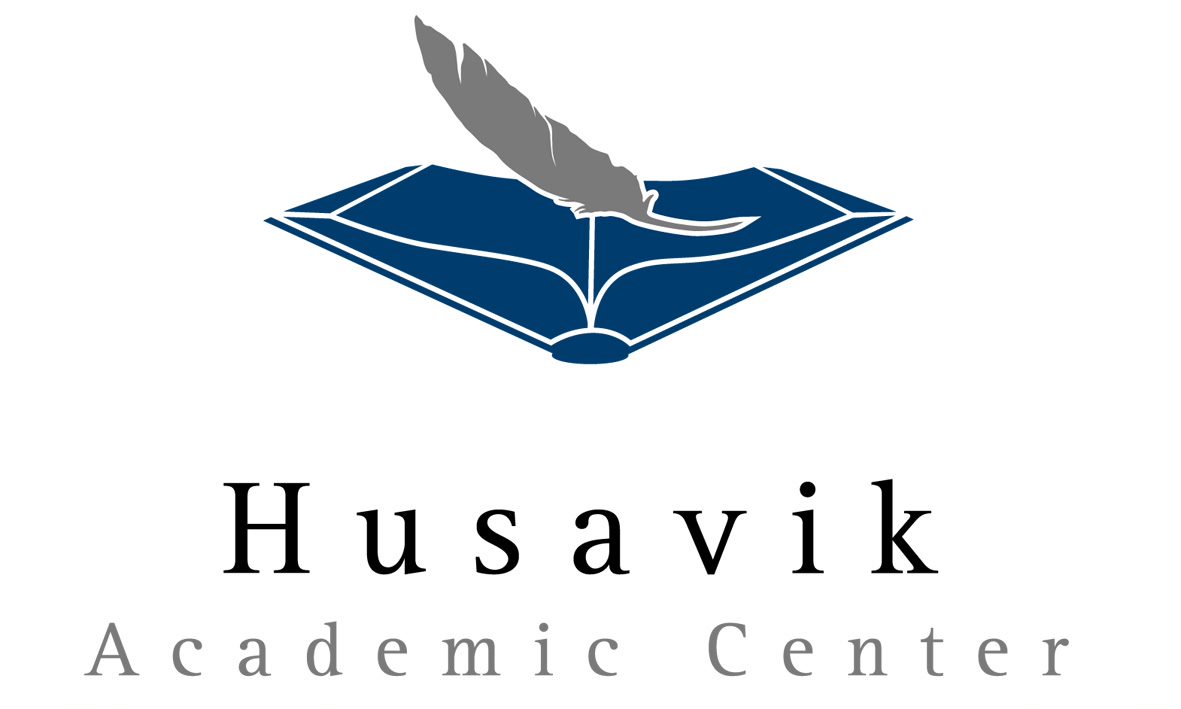MODULES

Introduction
DEAL distils down the vast amount of information available on Digital Enterprise startups into short, practical, easy to read modules which are gateways to more in-depth information you are recommended to research for yourself.
Learn what you want to learn at your own pace, in your own time.
If you are not familiar any of the terms used, check them out in the Glossaries.

Website Creation
In this unit, you will learn about website creation, the ways to give it a professional look and how to exploit its potential, to improve your business and grow as an entrepreneur.
Go to module
Website Content
In this unit, you will learn about website content, you will discover many ways to develop it, to enhance the products on the website and get customer attention.
Go to module
How to use Digital Communication to boost your business
In the module, we will learn about the advantages of corporate social networks for entrepreneurs. We will also learn how to take the first steps with the main social networks in their corporate version.
Go to module
How to create your online presence
In the module, you will learn how to develop a website and a blog using templates. Then you´ll be able to add an online store.
You´ll also learn tips to initiate a social media strategy.

Building your online reputation – Digital Public Relations
In this module, we will explore the concept of Digital Public Relations and examine how we might build our digital reputation and also manage any negative publicity or public relations crises.
Go to module
The EntreComp and DigComp frameworks to build-up your expertise in entrepreneurial and digital competences
The EntreComp and DigComp frameworks represents two highly reliable reference models to help targets and readers in understanding what competences and training areas they should focus on to acquire (at least basic) skills for digital entrepreneurship.
We proposed an in-depth introduction to both frameworks, in their outline and content, so as to better facilitate your understanding of how competences are conceived, designed and arranged.

An introduction to the General Data Protection Regulation (GDPR)
According to EU Law, a regulation is a legal act from EU policy institutions to which all Member States should comply with (as in the case of GDPR).
In its scale and scope:
1. [GDPR] lays down rules relating to the protection of natural persons with regard to the processing of personal data and rules relating to the free movement of personal data.
2. [GDPR] protects fundamental rights and freedoms of natural persons and in particular their right to the protection of personal data.
As such, GDPR whole focus of interest is upon EU citizens and their “right to be forgotten”.
• On one hand, GDPR represents a very robust and reliable systems of rights and “privileges” – if we look at it from the private citizen’s perspective.
• On the other, GDPR introduces a large set of obligations and duties, enforced by law, to which all organisations operating in EU should comply with – if we look at it from the business’ perspective.
To better understand the regulation of general Data Protection – and how you can comply with it – we will provide you a couple of key guidelines and pillars that orientate the ratio of the regulation:
• Glossary of references and common terms used by the legislation
• Basic principles of Data Protection
• Privacy rights that fall under GDPR’s interests

Creativity in a digital era
The course starts with an introduction to ways to foster creativity, such as methods of work and mentality that supports creativity. It is an overview of SCAMPER technique that provides seven different thinking approaches to find innovative ideas and solutions. It ends with a few examples of apps and websites for idea development and creative work.
Go to module
Critical Thinking in a digital era
This module, Critial thinking in a digital era, will enable you to think more critically and provide you with key questions to facilitate that process. Furthermore we look into critical thinking skills in a digital era, where information is more often screen and image based.
Go to module
Introduction to Computer Technology
This section of the programme deals with the basics of Computer Technology.
An ever expanding number of devices are now used to connect to and use the Internet. Some of the most popular computing devices are outlined in this module. You will also learn the basics of Microsoft Word & Excel.

Identify and Face Virtual Threats
Smart Ways to Protect your Personal Data
Top 10 Internet Safety Rules & What Not to Do Online
Protecting Devices
What is Antivirus Software?
Tips to protect your computer
Antivirus Recommendations
How to install antivirus on your computer

Conducting Your Online Enterprise in the Digital World
In this module, we will explore the concept of Netiquette and examine how we might become more engaged digital citizens. We will also explore the creation of e-habits and analyse case studies.
Go to moduleCase Studies

Gagababy
Gagababy.ie was started in 2007 by Mairead O’Sullivan. A true blue GAA [Gaelic sports] fan when it comes to wearing the county colours. On a train to Cork in 2006 to watch a match she wanted to dress her newborn son in his county colours but could only find shorts…..it was February and bitter!! So, she set about designing her own babygro in the Dublin colours and other mammies loved it too and so Gagababy was born! Mairead tells her story:
We combine our love of GAA with fashion and fun to produce our own unique collection of merchandise including the original Gagababy county babygros & mini solid ash hurleys engraved with your special message. Gagababy hat & bib sets, Gagababy club and county cardigans and Gagababy customised hoodies and t-shirts.
Glenda Vaughan joined the team in 2018 and is the new owner of www.gagababy.ie. A fellow Mammy of 3, Glenda will continue to offer our original gift range but also bring a new spark, energy & product ranges to the table. We pride ourselves on offering exceptional Customer Services to all our customers both at home and abroad. It’s a Mammy thing! – Cos we’re mad for the Game!
Many of our products are exported to the extended Irish family abroad. We know how proud of our culture our customers are especially when living abroad. Most of our products are made in house, offering us the flexibility to make something very special and personalised for our customers, so ring us with your ideas! We love finding out about our customers!
We also offer product design & manufacturing services to other sporting disciplines such as Soccer & Rugby.
www.gagababy.ie

Christmas Wreaths
Þórunn Ingólfsdóttir worked for 45 years organising meetings and conferences. When she closed her company Íslandsfundir in 2020, there was scope to focus on her creative craft work. “Now that I have retired, I can devote myself fulltime to what I have always loved doing,namely crafts such as knitting, crocheting, sewing and flower arranging.” Þórunn has attended short courses on flower arranging both at the Icelandic University of Agriculture and with Renate Rosenmeier, a Danish florist. Þórunn had an idea to make Christmas wreaths and her daughter provided the space for her to do so. This daughter also helped her to set up a Facebook page for the business, Krans, to advertise and sell the products. Þórunn has always done flower decorations for the family and has made Christmas wreaths every year for her children. “Christmas is my favourite time of year. I love Christmas and it makes me very happy to share the Christmas atmosphere with my wonderful grandchildren and their parents.” The demand for the Christmas wreaths has been much higher than Þórunn expected and she looks forward each day to working on her craft which has become a labour of love. She displays the wreaths on her Facebook page and receives orders via Messenger, phone, or email. "After this experience, I encourage everyone with dreams to make them come true. Nobody takes care of that for you. We must work on it ourselves."
Go to case study
Sewing Sigga
Sigríður Tryggvadóttir learned to sew at her mother's knee who sewed and altered clothes as was the customary back in the day. Her mothers advice was “My Sigga, if you take care to do the pattern well, it’s easy to sew a garment...”. Sigriður or Sigga, as she calls herself, began her sewing business when she became unable to work unable to work fulltime due to health issues. Sigga now specialises in giving courses and training on on altering and repairing clothes. She also also creates and markets her own designs. Some of her courses take place in cooperation with the Icelandic Federation of Women's Associations (Kvenfélagasamband Íslands) and are a part of their awareness-raising project on Fast Fashion Waste. In these courses you can bring your own garments that require alterations and go through a process of getting ideas on how to do it best and then learning how to do it. Sigga also makes short educational videos and encourages people to combat clothing waste on her social media platforms. Her Facebook page is where she advertises her courses and that is where she showcases and markets her garments. “For the last few years I have been specialising in the recycling of materials and love to alter old garments and make something new and unique out of them. This is very important to me today, with more environmental consciousness and knowing the effect of “fast fashion”. I am appalled by the overproduction of low quality clothing and textiles, and the mountains of clothing turned into waste. I believe that when we create our own clothes, sew, improve and alter them, we become more aware of the time and work involved in assembling a garment – and consequently reduce the purchase of cheap clothes made from poor materials.” For a while, Sigga also worked on doing alterations and sewing for others, but has now branched out into sewing her own designs and giving courses. Her latest venture is creating dresses out of old veils no longer in fashion. None of her garments are identical but she makes garments in as many sizes as possible. Sigga has a blog webpage with a guide and education section (https://saumahornsiggu.is). Here she talks about the materials she uses, her sewing, her designs. She tells stories from her life, her health, her work routine but most are about unique sewing tasks. In many of her blogs there are photos, showing the processes, where her ideas come from and the final result. Sigga does not just write instructions with pictures but also publishes short youtube videos on her blog and on Facebook. “I think it’s a good idea to have a page like this, not just because of the sales potential because here I can let others keep track of what I’m doing – it also helps me. I often find my working capacity very low and it is good to check the blog and see what I have been doing. Maybe someone can learn something from me, or just enjoy reading and looking at pictures and watching the videos."
Go to case study
Vanda
“At the start of 2010, my husband was doing his regular evening´s internet browsing when he stumbled across a sales advertisement for a small knitting company. On closer examination, this turned out to be a knitting company that produced work mittens.
Before we knew it, we had bought it and founded our own company Vanda ehf (https://vanda.is).
We knew little or nothing about this kind of knitting, and the knitting machines were not easy to use, use, not exactly designed with amateurs in mind.
In our first year we learned on the job by making mistakes and correcting them and doing repairs of the machines. We sold about 600 pairs of mittens and were happy and exhausted. We asked ourselves regularly if we should continue or give up. We decided to continue and in 2013 we applied for a grant to develop our marketing, design a logo and improve the labelling on the product. We started promotional campaigns for potential customers and after 3-4 years we had sold 6000 pairs and the machines started working with us. Since then, sales have increased. We have made ourselves sustainable and learned how to operate a small family business.
A lot of work has gone into this adventure that started with a little evening´s internet browsing on the part of my husband, but it has also given us fun times together. Our children have grown up with the family working together on this project and everyone played a part in it.”

Combining Experience and Joy; The story of Brúnir Horse: A Family Farm
This case study introduces the family of Brúnir Horse Farm; Einar, Hugrún and their twin daughters Guðbjörg and Þórhildur. Einar and Hugrún have a long experience in horse breeding, they are art lovers and enjoy welcoming guests and are long known by their friends and family for their hospitality. By turning their farm into an open family farm in 2017, offering visitors and guests the opportunity to learn about the unique Icelandic horse, they have ignited their own innovative ideas and solutions. Einar’s childhood dream was always to become a farmer, but he has a diverse educational background, which have helped shape his interests and expand his knowledge. He has a degree in agriculture and blacksmithing, but later, his calling for arts and artwork led him to study for an art degree.
In addition to organising professional shows where the Icelandic horse is introduced in its natural environment, they also host a studio and an exhibition area where guests can view Einar’s paintings that are on show and for sale. Combining their profession and hobbies has provided a unique opportunity to innovate. Additionally, they plan to offer works of other artists to be exhibited from time to time. Hugrún’s professional background is in Intensive Care Nursing, an occupation she practised for many years. She now holds a position as the educational facilitator of the Akureyri Hospital. It is safe to say that there is never a dull moment at Brúnir.
Alongside their horse farm and art gallery, they have a studio apartment and a conference room for rent outs, thereby giving groups and families the chance to meet and/or get a taste of farm life. Their small and homely Brúnir Horse Café offers local cuisine on site, where the menu consists of lighter meals, as well as some home-made bread, cakes and pastries. The food is primarily made with fresh ingredients from the region.
This example of a family-owned business is a good case study introducing adult innovation and entrepreneurship.

Red Rufus
Red Rufus is a collection of adorable sock dog toys created by Christina Sanne, who is based in south Dublin. Christina founded the company having being inspired by the adored family dog (an Irish Setter named Rufus) to make sock animals for the three children for Christmas 2008. When friends and family spotted these beautiful creations, Christina found herself being asked again and again to make Sock Dog for others. She started to sell her products at craft fairs and eventually founded the company in 2010.The website address is www.redrufus.ie These one-of-a-kind handmade pooches are full of charm and personality. They are beautifully hand stitched which gives each toy an individual feel and they are also durable and resilient. They are wonderfully cuddly and the eyes are soft and stitched securely and it seems to be a good thing that they aren't buttons, which always seem fall off. These would make a wonderful gift for any child and they can be specially gift wrapped. They can also be customised by embroidering the child’s name making it a very special, personal gift. What sets them apart is the fact that they are unique, handmade Irish toys and will definitely be treasured for a lifetime.
Go to case study
Carveon
Interview with Alan McCormack at:
https://www.localenterprise.ie/Kildare/Case-Studies/CarveOn-Q-A-with-Aland-and-Gary-brothers-and-founders-of-CarveOn.html
Here is the startup story:
In November 2011 we began handcrafting a range of wood and leather tech accessories in a humble garden shed. We designed products that we wanted to use ourselves and had a lot of fun doing it. We developed our own ecommerce store and began marketing and selling our goods online. CarveOn was born.
In 2013, after some initial success, a lot of hard work and armed with a grant from our extremely supportive Local Enterprise Office, we moved the business to a former milking parlour on a farm in our home village of Kill, Co. Kildare. The converted farmyard was home to lots of other small manufacturing businesses who were quick to share equipment, resources, and expertise. Over the next three years, we grew our capabilities, equipment, product range, and most importantly our team. Although extremely happy in our 1,000 ft2 workshop, it wasn’t long before we reached capacity. It became apparent we would need significantly more space and staff if we were to keep up with growing demand.
In 2016, after an exhaustive search, we found an old 15,000 ft2 metalwork factory which had been unused for over eight years. It was situated in the nearby picturesque town of Kilcullen. It was a fixer upper but had the perfect amount of character. Over the next six months, assisted by family and friends, we painstakingly refurbished one of the two buildings on the one acre site. We knocked down all internal rooms, removed all the outdated wiring and started again. We designed each space with the same care and attention to detail that we apply to our products, packaging, website, and work furniture.
We primarily sell through our website www.carveon.com but also through selected retailers and 3rd party websites in other foreign markets.

The Little Wax Company
Profile
THE LITTLE WAX COMPANY LIMITED is located in Lusk Co. Dublin, Ireland and is part of the Manufacturing Sector Industry. THE LITTLE WAX COMPANY LIMITED generates $132,000 in sales (USD).
The business has made rapid strides since startup in 2018 and two years later was incorporated as a Limited Company (2020) with two directors – a husband and wife team.
The company positions itself as a luxury brand seller. For the DEAL project it offers relevant
aspects:
• It started as a hobby.
• It is a recent startup.
• It is a family business
• It sells only online
• This makes the website of paramount importance.
• In two years it has reached an annual sales figure of around €100,000 ( Dun & Bradstreet)
• It recently registered as a Limited Company which indicates confidence in the sustainability of the business
The Little Wax Company officially became a business in February 2019 and has gone from strength to strength ever since. What started in Amy and Marc’s kitchen, stayed there for some time as she made, poured, packaged and sent out all the orders from the family home. The kitchen, utility room and living room had all been given over to making the products with orders coming in thick and fast. Amy recalls the kids not even being able to get into the kitchen for a slice of toast (at least not one that didn’t taste like fragrance) and their new dining table sitting, unused as it was covered in wax melts. At the peak of their orders, while the business was based at home, Amy shares that the kids were eating in their bedrooms and every single surface was covered with products.
During Lockdown
During lockdown in 2020, it was particularly difficult as nobody in the family had any escape as everyone was at home, things had to change, and fast. This summer, The Little Wax Company took the leap and moved into its own premises in North County Dublin, which means the family can finally return to fragrance free meals at home! At the beginning of her business journey, Amy revealed she found it difficult to share her intense workload with anyone, as she had her own systems and methods of doing everything, from the pouring to the packing. However, after a particularly manic Christmas 2019, where the business saw a huge increase in orders, there are now more people involved. The team at The Little Wax Company is small and very hard-working, with Amy and Marc committed to hiring local to the area.
Family Run Business
It’s very much a family affair, as Amy’s husband Marc, who she describes as her biggest supporter, looks after the financial side of the business. Despite this, he is not averse to rolling up his sleeves and getting stuck into packing boxes when things are busy! Taighlor, Amy’s daughter is also just as involved as she was there the first time they made a wax melt together, having spent the entire summer working full time for the business. When Amy’s sister Sarah was out of work due to the Covid-19 pandemic, she also joined the team working part time looking after admin and customer care.
Even little, Ella who’s 9, helps out tying bows at home to be attached to the The Little Wax Company diffusers. Having always loved baking, Amy has always had a creative flair and a love of making things. When she began dabbling in the world of fragrance, Amy quickly discovered it was something she had a natural talent for. This, combined with a passion for interiors, has meant that Amy’s products have always been about more than just scent. They are designed to be a beautiful addition to your home as well as setting the mood through fragrance and ambiance. One only needs to look at the selection of products on offer to see how aesthetics are just as important as what the product smells like. All the candles are made with cotton wicks and the wax is a blend of coconut oil and soy. They are also paraffin free, meaning they’re safe to incorporate into your home and lifestyle. Every single product of The Little Wax Company are hand poured on-site by Amy’s team before being packaged and sent out to customers.
We hope you love having The Little Wax Company make your home that little more luxurious, every day.
https://thelittlewaxcompany.ie/

Wild Irish Foragers
In the wilds of Co. Offaly is a small 5th generation family farm. Yes, it is small, the gates might not hang perfectly, the hedgerows are pretty wild, and grass grows in the middle of the lanes, unusual wild flowers spring up hither & thither as they wish to, but 5 generations in, we feel a deep connection with this land. Here is our startup story:
We have an old, sometimes reliable Leyland, 5 kids & a love for our little patch of Ireland.
Sons, father, his father & his father & his father before him have all walked this land, cared for it, loved it and struggled to make a living from such a small patch, but they all have strived to keep it in good stead for the next generation. Back in 2008, whilst out picking blackberries our youngest daughter Emily looked up in the hedge & asked ‘What is that?’, she didn't know what a Rosehip was! We were shocked as we had presumed that if we knew what it was then surely she knew too. How wrong we were to presume that this part of country living as we knew it was automatically being passed on. We picked some Rosehips that day & that night rooted out an old recipe and the first time she tasted Rosehip Syrup it was in a wee cup, still warm from the pot. Over the next few years we sourced old recipes for Elderberry Syrup and more and our interest grew and grew. Our passionate connection with this land had deepened even further. In April 2013 we decided to share our love for this land and its bounty and started a small business called The Wild Irish Foragers & Preservers. From the farm we personally hand harvest Wild Rosehips, Elderberries, Damsons, Elderflowers, Gorse, Rowanberries, Sloes, Spring Nettles, Blackberries, Honeysuckle, Goosegrass, Clovers to name but a few!. From these incredible, natural wild Irish ingredients we make Syrups, Sauces, Fruit Cheeses, Jellies, Pontack and our newest product, Shrubs. We strive to recreate a taste of the past, recipes that were used in a bygone era. Wild food used in this way is part of Irish Food Heritage, a simple taste that has been almost forgotten. When we started out, we went to Farmers Markets etc. and were amazed at the level of interest in our products and the amount of people who were so thrilled to taste a reminder of many of their childhoods.
www.wildirishforagers.ie

Mc Niffe´s Boxty
Detta and Micheál McNiffe have been making Ireland’s finest Boxty since 1988 using a family recipe for Leitrim Boxty that is over 150 years old. Made with love in Co. Leitrim using a family recipe it combines the delicious taste of real potatoes, a touch of wheat flour and just a sprinkle of salt to bring a truly unique Irish dish that has been loved by families for generations. McNiffe’s Boxty products have been enjoyed by loyal customers all over the world including the United States, UK and Australia via the website www.mcniffesbakery.com
Boxty is a traditional Irish food native to Co Leitrim and the North West of Ireland. Its origin dates back to before the famine times when it was so popular that it inspired folk rhymes:
“Boxty on the griddle, Boxty on the Pan, if you can’t make Boxty, you’ll never get a man”.
Boxty is a very popular dish in the North/West of Ireland, in particular Co Leitrim, Co Cavan, Co Longford, Co Roscommon, Co Sligo, Co Donegal, Co Mayo and Co Fermanagh as it has been enjoyed for many years by Irish families living in these counties. However, its popularity has now spread far beyond with families enjoying Mc Niffes Boxty all over Ireland as well as the UK, USA and Australia.
There are 3 distinct and very different varieties of Traditional Irish Boxty: Pan Boxty, Loaf Boxty and Boiled Boxty, named after their method of cooking.

Connemara Atlantic Seaweed Company
FROM THE WEST OF IRELAND
HAND HARVESTED ORGANIC SEAWEED
Noel Lee was born and raised in Lettermullen, a beautiful windswept Island off the West Coast of Ireland. For generations, the Lee family have been hand harvesting Kelp and Seaweed off the Connemara Coast.
OUR MISSION
Our mission is to provide hand harvested, sustainable, kelp and seaweed products for human consumption through health supplements and edible products. Having a positive impact on our community and our environment is at the core of all that we do.
WHAT DRIVES US
We aim to provide you with sustainably harvested, local, edible seaweeds and introduce these as an alternative food source that is healthy, nutritional, tasty, and good for the environment. It is important to acknowledge the importance of seaweeds for marine life, and we need to balance this with its use by humans. We, therefore, adopt an ecosystem approach, meaning that we promote conservation and sustainable use in an equitable way.
Most, if not all, the seaweeds currently for sale have travelled thousands of kilometres to reach your local supermarket and food shop. Small-scale, local produce is key to a happier life and leads to a lower carbon footprint. By providing food from our waters, we hope to contribute to a low-carbon economy that takes care of its environment. We hope and believe that seaweed becomes part of everyone’s diet and that we come to recognise it for what it is. A superfood, both environmentally and nutritionally!
https://www.connemaraseaweedcompany.ie/

Skeaghanore Duck
Born in Woodfield, West Cork, Helena grew and spread her wings to study nursing in the Mercy Hospital in Cork city. From a love of nursing Helena flew across the pond to England to train as a midwife. In 1988, both Helena and Eugene moved back from England to West Cork, wed in 1990 and started a family of their own.
Work in Skeaghanore is a very different setting to a hospital room, but Helena successfully made the transition and deals with the day to day running of the business. From the distribution, marketing, stock control, accounts and sales.
Eugene is the third generation of farmers on which the Skeaghanore Duck business is set upon. Helena was in England, so Eugene made the decision to fly over and spent a few years working on construction sites. When the time came, both made the decision to come home to West Cork. In 1990, Eugene and Helena married and settled on the family farm in Skeaghanore. Eugene’s parents always had poultry on the farm, for their own use growing up.
Eugene now manages a duo – farming method with milking cows all year round, as well as taking care of the duck rearing. He successfully rears delicious duck and Christmas geese for us all to enjoy, maintains the farm and loves his wife.
From 1991, the family starts to grow with the addition of the first son Daniel. Come 1994, Helena is due with their first daughter, Clara. Worried about the income to support their growing family, they saw that there is a gap in the market for poultry other than chicken, people were looking for a good quality Irish duck. From there, the idea grew, they bought in day old, reared them for 7-8 weeks, processed them and travelled from restaurant door to shop door asking people to try their duck. Fields Supervalu were one of the first to take the duck and have always had a strong relationship with good quality food. Even today 23 years on, this relationship still stands strong.
Like we always say, the family grew as the business grew. In 1997 their second daughter Lisa reaches the scenes, now the business is expanding quickly with the ducks taking up more and more room. Skeaghanore ducks are hand-reared, bedded on straw, and fed on a 100 per cent natural cereal-based diet. The end product is exceptionally succulent and tasty. What’s more, chefs also point out another secret ingredient: the salt-laden air from nearby Roaring Water Bay, which lends the ducks an intriguing salty taste: www.skeaghanore.ie
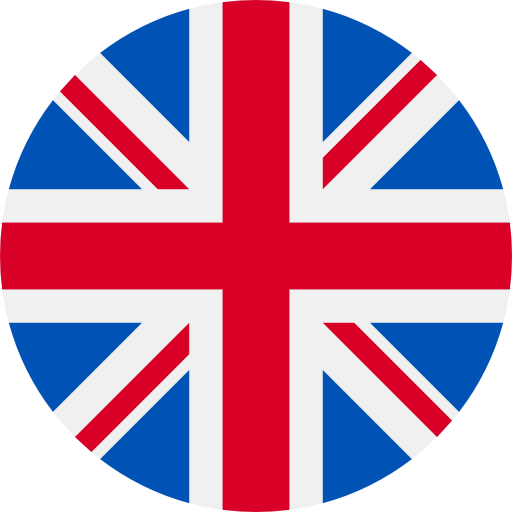 EN
EN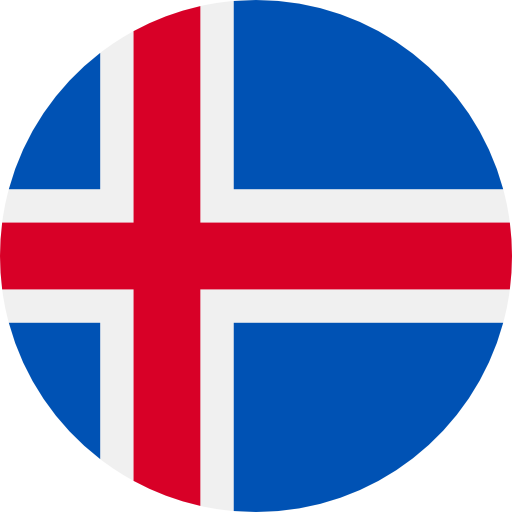 IS
IS IT
IT ES
ES
